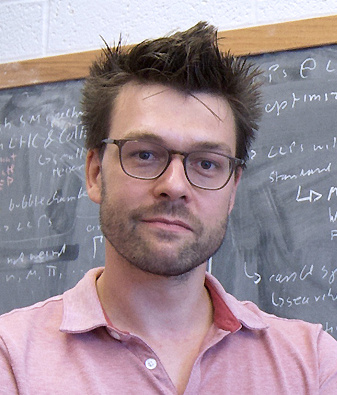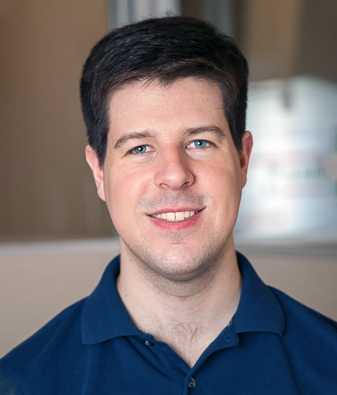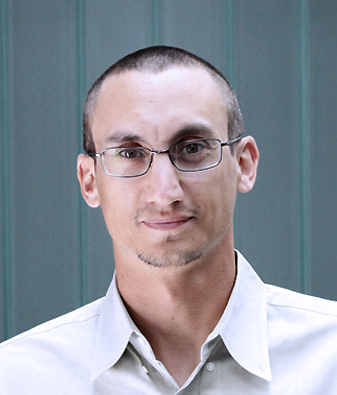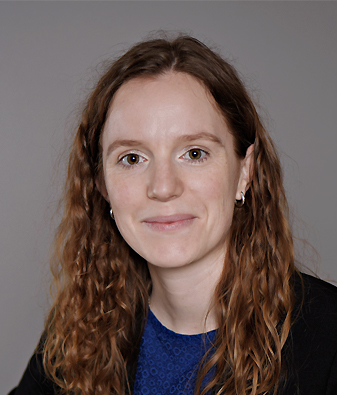Four researchers from the Faculty of Arts & Science have received prestigious Sloan Research Fellowships for 2021.
The four, all assistant professors, are:
- David Curtin, Department of Physics;
- Roger Grosse, Department of Computer Science;
- Tovi Grossman, Department of Computer Science;
- and Sophie Rousseaux, Department of Chemistry.
The research fellowships are awarded annually by the Alfred P. Sloan Foundation to early career researchers in Canada and the United States “whose creativity, innovation and research accomplishments make them stand out as the next generation of scientific leaders.”
“I’m thrilled that today four accomplished researchers were named Sloan Research Fellows,” says Melanie Woodin, dean of the Faculty of Arts & Science. “We are very fortunate to have these promising early-career scholars among our faculty. They are, without a doubt, researchers to watch.”
“A Sloan Research Fellow is a rising star, plain and simple” says Adam F. Falk, president of the foundation. “To receive a fellowship is to be told by the scientific community that your achievements as a young scholar are already driving the research frontier.”

David Curtin is a theoretical particle physicist whose groundbreaking and multidisciplinary work is extending the current understanding of the universe’s most fundamental physical laws. He combines original and creative theoretical research with a strong understanding of the experimental side of his field.
Curtin has made important contributions in a number of research areas including: supersymmetry; the behaviour of quantum fields during the Big Bang; the Higgs Boson; so-called Long-Lived Particles that are relatively slow to decay; theoretical work related to the search for Dark Matter; as well as questions driving the construction of the next generation of detectors and high-energy particle accelerators.
Curtin’s quest for new physics is demonstrated in his proposal to build an innovative experiment named MATHUSLA to find previously undetectable particles generated by the Large Hadron Collider (LHC) — the largest particle accelerator ever built. Curtin is one of the leaders of the international collaboration developing the project.
“It is wonderful to receive this fellowship,” says Curtin. “It’s an especially cathartic piece of good news for me in the midst of the long pandemic lockdown. I take this honour as vindication of my approach to fundamental physics research — which blurs the lines between disciplines — and as encouragement to press on into new areas.
“This recognition will greatly aid my research program,” he says. “It underlines U of T's status as a world leader in fundamental science, which is vital to attract the top young talent and other resources we need to make our visions a reality.”
Curtin received his PhD from Cornell University and held research associate positions at Stony Brook University and the University of Maryland. He was hired in 2017 and officially joined the Department of Physics in 2018 where he holds the Canada Research Chair in Theoretical Particle Physics.

Roger Grosse is a machine-learning researcher whose work is contributing to fundamental advances in artificial intelligence (AI), particularly in the deep neural networks (DNN) having an increasing impact in society through applications such as language processing, vision systems and e-commerce.
Grosse’s work is yielding advances in our understanding of what makes DNNs work and how to fully optimize network architectures and algorithms so that they train faster, generalize better, can reveal the underlying structure of a problem and make more robust decisions.
In addition to this optimization work, Grosse is also producing significant theoretical results — for example, with advances related to how networks converge on solutions.
And while his work is contributing to the greater realization of the potential of machine learning’s positive impact on computer science and real-world challenges, Grosse also investigates the ethics of AI to ensure that AI systems are consistent with human values.
“I am humbled and honored to receive the Sloan Fellowship which has supported generations of outstanding researchers,” says Grosse.
“It will help enormously to push forward my research on understanding neural network training dynamics and using this understanding to improve neural nets' efficiency, robustness and ease of use. I’m grateful for the career opportunities this recognition unlocks.”
Grosse received his PhD in computer science from MIT and joined U of T in 2014 as a postdoctoral fellow before becoming an assistant professor in 2016.

Tovi Grossman’s research encompasses diverse topics in the field of Human Computer Interactions (HCI). One focus of his work is the development of contextual, media-rich and personalized learning systems designed to help users adopt today’s increasingly complex software applications. This research into software learnability has many applications including the potential to make complex software accessible to all users.
Another focus of Grossman’s research is on computing technologies, wearable devices, virtual reality and their potential to transform how we learn to carry out a variety of tasks across different domains including fitness and athletics, electronic assembly, as well as workshop and makerspace tasks. This work on physical learning is having an impact on the ability of humans to work alongside automated technologies such as robotics.
A leader in the Canadian and international research communities, Grossman’s pursuit of research with real-world impact can be seen in technologies developed from his work — for example, in commercial products such as Autodesk Screencast and Autodesk Sketchbook Motion which was selected as Apple's 2016 iPad App of the Year.
“I’m incredibly grateful to be selected as a recipient for a 2021 Sloan Research Fellowship,” says Grossman. “The Department of Computer Science is composed of many outstanding early career scientists with exceptional promise, so to be recognized for such an award is humbling.
“This is a direct result of the fantastic students, collaborators and mentors I’ve had the privilege to work with throughout my research career. It is particularly rewarding that I can share this honour with my colleague and collaborator, Daniel Wigdor, and our shared PhD supervisor, Ravin Balakrishnan.
“Support from this award will allow my students and I to continue to contribute to this lineage of Human-Computer Interaction research excellence at University of Toronto.”
Grossman received his PhD in HCI from U of T and became an assistant professor in the Department of Computer Science in 2018.

Sophie Rousseaux’s research in the area of synthetic chemistry focuses on the development of new methods to access — more efficiently and in a safer manner — biologically active and medicinally relevant small molecules. She is particularly interested in the use of transition metal catalysis to achieve this objective.
Rousseaux’s work is of significant relevance to the synthetic chemistry used in the biotech, agrochemicals and materials sectors. The impact of her work is also evident in the interest paid to it by the pharmaceutical industry. She has been invited to speak at various pharmaceutical companies, and has also consulted and collaborated within the industry.
“It is such an honour to have been selected as a 2021 Sloan Research Fellow in Chemistry,” says Rousseaux. “The fellowship is a recognition of the amazing work the students in my group have been doing and I’m very grateful for their contributions to my research program over the last five years.
“The Sloan fellowship will have a significant impact on my career, allowing my group to develop new synthetic methods to access medicinally relevant small molecules in a more efficient and/or safer manner.”
Rousseaux received her PhD in chemistry from the University of Ottawa, spending the last 17 months of her degrees as a visiting student at the Massachusetts Institute of Technology. She was an NSERC postdoctoral fellow and Glasstone Research Fellow at the University of Oxford, and held a junior research fellowship at St. John’s College. She joined U of T in 2015 as an assistant professor and holds a Canada Research Chair in Organic Chemistry.
The 2021 cohort of 128 new fellows was selected from 1000 nominees. Each will receive a two-year, $75,000 fellowship to advance their research.

